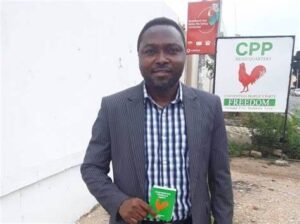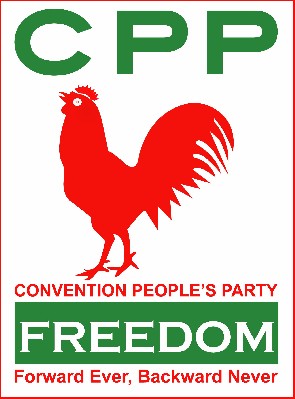The Convention People’s Party (CPP) has publicly disavowed the impeachment petition filed by its 2024 running mate, Wayoe Ghanamanti, which seeks the removal of John Dramani Mahama from the presidency. In a statement dated October 22 2025, the party’s chairman and leader, Patrick Nelson Sogbodjor, clarified that the petition was neither authorised nor supported by the CPP’s Central Committee.
The petition filed by Ghanamanti under Article 69 of the 1992 Constitution alleged that President Mahama and his administration had failed to honour pledges made during the 2024 election campaign, particularly in relation to the fight against illegal small-scale mining (galamsey). Ghanamanti asserted that the government’s inaction, and in his view complicity, in illegal mining warranted the initiation of proceedings for removal.
In response, the party’s leadership emphasised that Ghanamanti acted independently and without the knowledge or consent of the CPP’s decision-making body. The statement described attempts to associate the CPP with the impeachment move as “unfounded and misleading.”

Political analysts note that the episode highlights internal tensions within smaller Ghanaian political parties, where individual activism occasionally bypasses formal party structures. The CPP, once a dominant force in Ghana’s post-independence politics, has struggled in recent years with waning influence, electoral setbacks and questions of identity. This incident adds further strain as the party seeks to re-establish relevance ahead of future elections.
For the CPP, the swift distancing move serves two purposes: safeguarding the party’s institutional integrity and avoiding alignment with what many observers regard as a symbolic but politically risky petition. With the impeachment effort perceived by some as lacking viable constitutional grounds and strong parliamentary support, the party appears keen to avoid entanglement in what might be a quixotic venture.
Legal experts point out that under Article 69 of the 1992 Constitution, the threshold for impeaching or removing the president is extremely high. A petitioner must present clear evidence of treason, corruption, or misconduct in office. Simply failing to meet campaign promises, however serious, does not automatically constitute a ground for removal unless it translates into a covered offence. Given the lack of precedent and the ruling party’s majority in Parliament, the chances of success for the petition were seen as slim.
Within the party, the development raises questions about discipline and leadership coherence. Ghanamanti’s unilateral public move may prompt internal reviews of candidate conduct and party oversight mechanisms. Some CPP members have already begun to question whether the running mate retains formal standing within the party following the unauthorised action.

From a broader political standpoint, the incident intersects with Ghana’s escalating public frustration over environmental degradation, particularly galamsey, which has repeatedly featured in national debate. While the petition’s underlying concern taps into widespread anger over mining destruction, many policymakers argue that the grievance is better addressed through institutional reform and legislative oversight rather than impeachment.
President Mahama has previously pledged to take strong action against illegal mining and has indicated a willingness to declare a state of emergency in affected areas. Whether the petition has any impact on those commitments remains unclear, but the CPP’s distancing statement suggests the party does not intend to engage formally in the impeachment route.
As the CPP moves to reaffirm its priorities, observers claim the party will focus instead on strengthening its organisational structures, refining its policy platform, and rebuilding electoral credibility. The episode underscores the challenges facing smaller parties in Ghana’s dominant two-party system, where aligning activism, leadership strategy and institutional coherence remains a persistent challenge.
For now the CPP has made its position clear: the petition stands as an individual initiative, not a party-backed effort. Whether Ghanamanti’s action marks the beginning of further internal shifts or disciplinary proceedings remains to be seen, but for the public, the message is simple: the party is seeking to draw a firm line between its institutional identity and unauthorised political manoeuvres.
CPP’s Wayoe Ghanamanti Petitions Parliament to Impeach President Mahama

